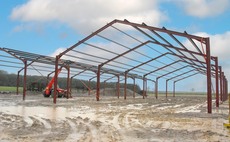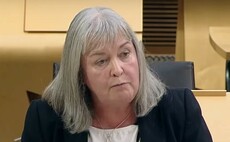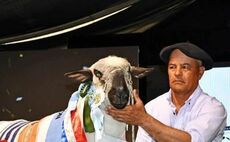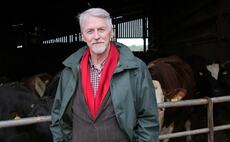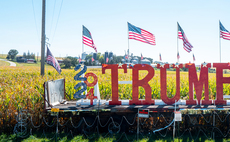Ahead of her victory in the Conservative leadership election, Liz Truss set out her plans for the farming sector at a virtual hustings held by the NFU. Abi Kay reports on the highlights.
NEW Prime Minister Liz Truss has said she will not introduce a Soviet-style food self-sufficiency target as called for by the NFU.
But setting out her farming views at an online hustings held by the union last week (September 1), she promised to make food and energy security her top priorities.
It is a concern I have that we are not sufficiently focused on food production, she said.
I am not a great believer in putting forward legally binding statements, what I am in favour of is delivering.
I said on housing I do not favour Soviet-style top-down targets and I do not favour a top-down target on food production.
What I favour is generating the conditions in which farmers are able to be more successful, get investment and get up the value chain.
The conditions for food production right now are anything but favourable, though, as farmers struggling with record energy prices .
Ms Truss hit out at the record of the Government she has been a part of for the past decade, claiming not enough had been done to secure energy supplies over the previous 20 years.
She said: My first priority, as well as reducing taxes on consumers and businesses, will be to deal with the supply issue and make sure we become more energy self-sufficient, in the same way I have talked about us becoming more self-sufficient in food.
What I will do if I am elected as Prime Minister is make sure I am not just focusing on consumers, but also focusing on business energy costs.
I will be looking to act fairly quickly on dealing with that energy issue and providing reassurance to consumers and businesses, including farmers.
What we cannot have is yet another sticking plaster solution. We need to sort out this issue of national energy security and make sure that is a priority into the future.
She also promised to look at what can be done to bring down soaring fertiliser prices.
Throughout the election campaign, Ms Truss majored on the idea of cutting red tape for farmers, saying in her recent that she would unleash the potential of British food and farming by removing onerous EU regulations.
But when asked for more detail on which red tape would be cut, she floundered, only able to name restrictions on agricultural drone use and a need to simplify environmental schemes.
What I want is an overall refocus, so we are more focused on food production, she said.
That is my priority, and I would want my Defra Secretary to listen to farmers and the NFU about exactly what is getting in the way of that production taking place.
I want to look at that and how we can improve the delivery of our payment schemes to make it simpler for our farmers.
On labour, Ms Truss reiterated her previous commitment to extend the Seasonal Workers Scheme and pledged to change the relationship the Home Office had with industry under the leadership of Priti Patel.
I see this in my own constituency, whether it is poultry producers or producers of products like herbs, it is very difficult to find people to do those jobs, she said.
We have traditionally always relied on seasonal agricultural workers. We need to expand the scheme to enable those businesses to get the crops out of the ground.
I have advocated for it in Cabinet and should I be successful in becoming Prime Minister, I will make sure the Home Office is properly engaging in that discussion and there is joint work between Defra and the Home Office in delivering what we need.
Ms Truss was supportive of the Governments record on trade, where she played a key role as Trade Secretary, but said she would do more to boost exports by looking at match funding for AHDB levies.
She was also adamant that post-Brexit trade deals contain very strong safeguards for agriculture and claimed a Parliamentary debate on the Australia agreement would take place in the autumn, despite the fact that the opportunity for MPs to delay ratification has already passed.
My focus will be on helping the industry get the investment it needs to become more competitive and take advantage of the export markets which have been opened up, including the US market we have got the beef and lamb ban lifted on and the markets in the Pacific where prices are much higher than they are here, she said.








